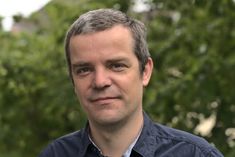Thomas Thaler from the Institute of Landscape Planning at BOKU Vienna and meteorologist Marcus Wadsak spoke to geneticist Markus Hengstschläger in the KURIER TV programme ‘Spontan gefragt’ about why socially disadvantaged population groups in particular are more affected by global warming.
‘Climate change is fundamentally a huge social injustice. Those who cause it can afford to adjust,’ says Wadsak.
The first district in Vienna regularly becomes a heat island in summer, but the residents there can afford air conditioning. In the urbanised working-class districts, the situation is different. The city tries to counteract the heat with hotspots - for example with trees and greenery. But a climate-friendly neighbourhood that doesn't overheat in summer also makes the properties there highly sought-after, Thaler knows. Greening, rents and property prices are causally linked and manifest themselves in gentrification, Thaler continues.
However, it is not only low-income people who suffer from the increasingly frequent heatwaves, but also older people. ‘People are already dying from the heat,’ says Wadsak. Climate policy and social policy must move closer together in future and be placed in a stronger planning context, advises Thaler, in order to redesign cities in a climate and socially fair way and make them more liveable.
The full-length video at futurezone.at/science/erderwaermung-klima-soziale-ungerechtigkeit-marcus-wadsak-thomas-thaler-spontan-gefragt/402906420

